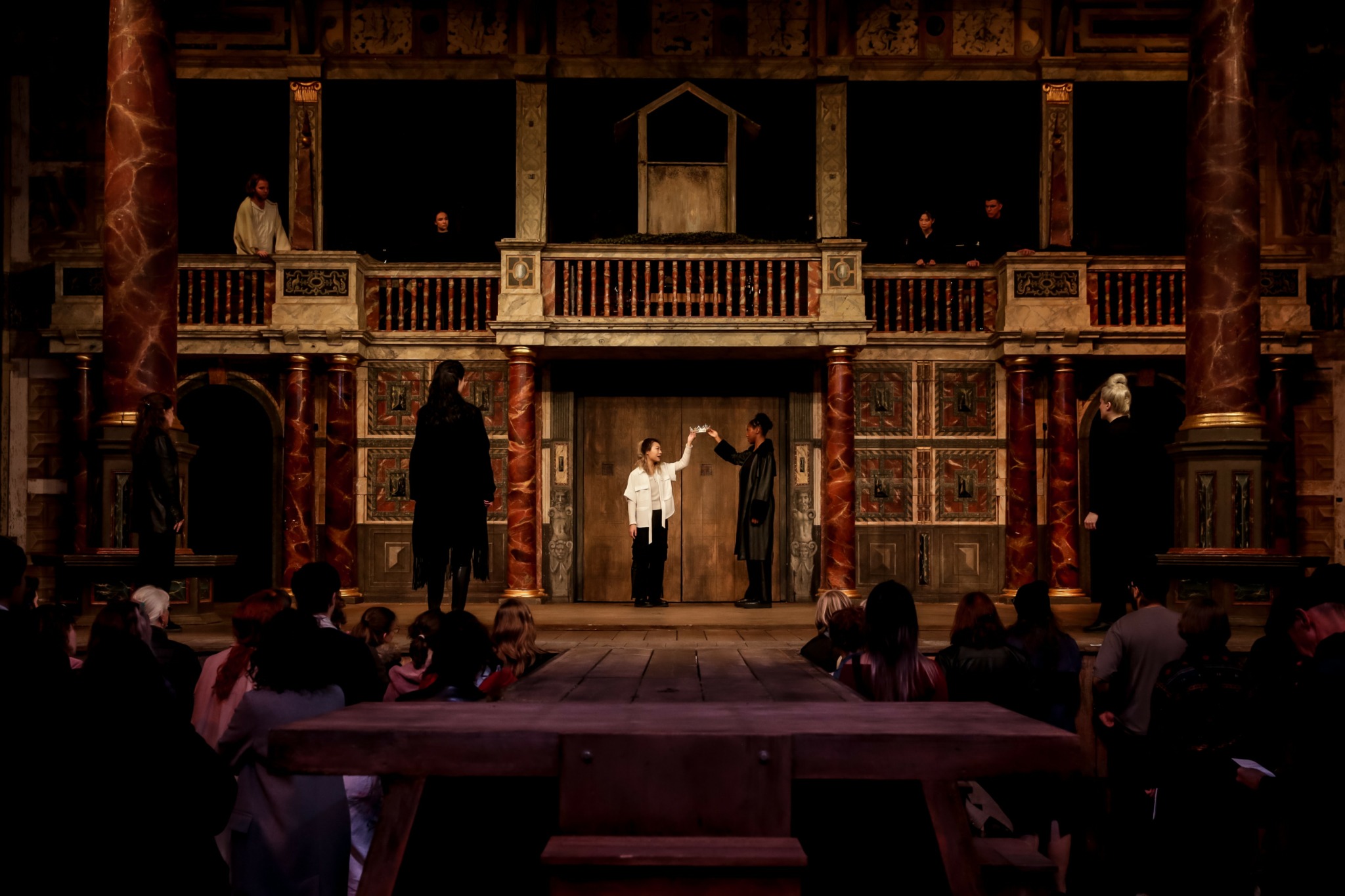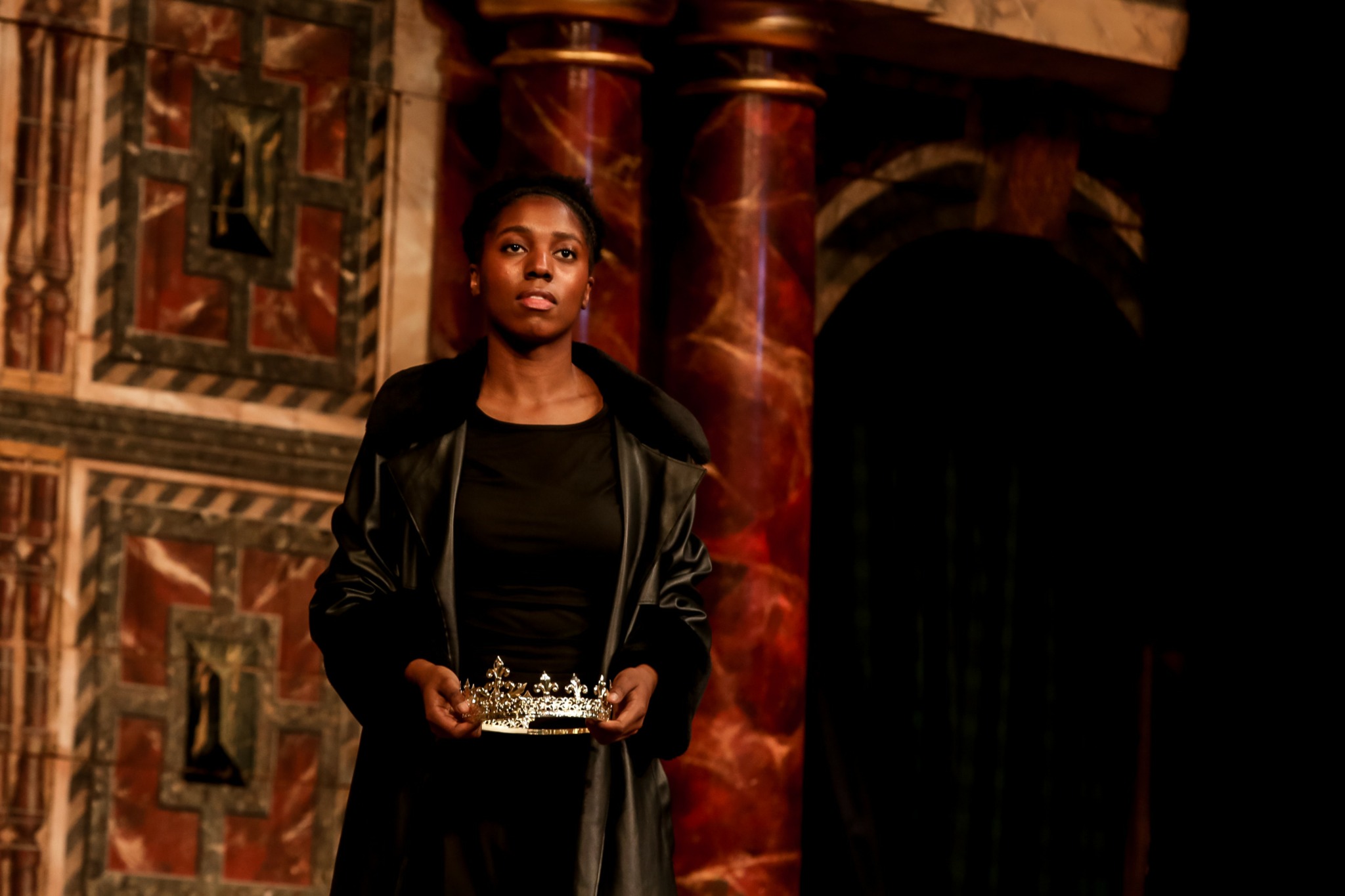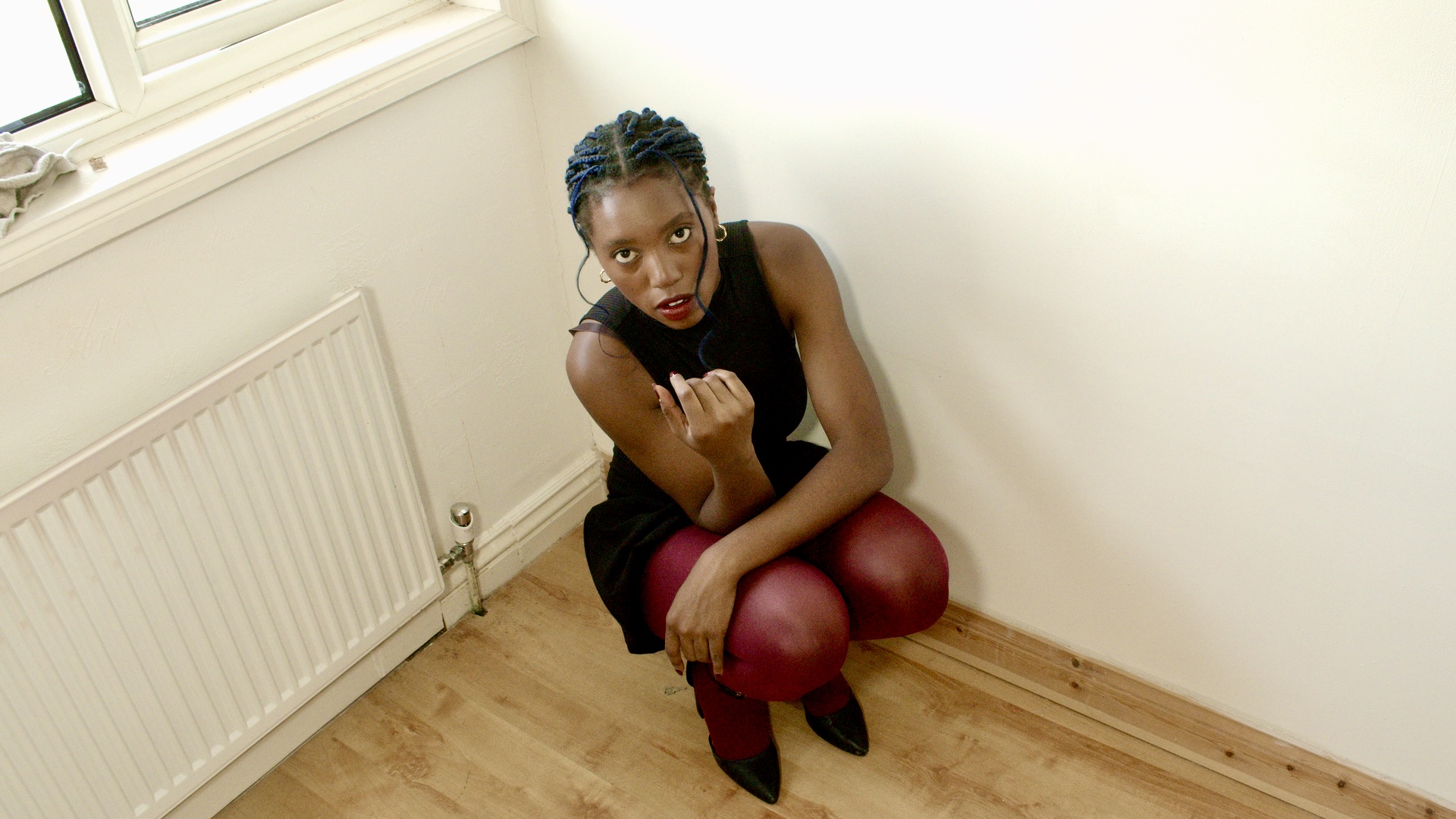We recently connected with Bitota Mpolo and have shared our conversation below.
Bitota, appreciate you joining us today. Can you talk to us about how you learned to do what you do?
I am lucky enough to have had the opportunity of learning the craft of both filmmaking and acting at educational institutions. However, like most careers, you learn so much on the job. During my undergraduate degree, I scraped together the little money I had, alongside a couple of my peers, when I was studying abroad in Australia, and we made a little horror film. I wrote the script in two weeks and shot the film in about four days with about four hundred dollars to feed my cast and crew and pay for the location. After shooting the film, I worked alongside our editor to make a final cut and ended up getting distribution to put the film out into the world. That experience taught me so much about filmmaking. It is the core foundation of my film industry knowledge. Although I learned a lot of the basic structures and rules within the University system, I learned how to apply them to my craft and when to allow myself to break the rules through making films myself.
With acting, it was a similar journey, except the egg came before the chicken, so to speak. I started acting in childhood through nativity plays and adapted Shakespeare throughout my schooling, as well as many other classic plays. But in terms of pursuing it professionally, I sort of fell into it. During the pandemic, students were looking for actors in their native cities since we weren’t on campus. Luckily, San Francisco has a thriving art scene, so I had the opportunity to do a handful of short films during that time period. With that experience, I scraped together my first acting reel and secured representation in Los Angeles. Long story short, from that point on, I auditioned a ton, was in and out of different acting studios, booked here and there, until I decided to pursue a more rigorous, well-rounded training in acting. I have loved the work of actors coming out of UK drama schools, so I applied for a few programs and landed at East 15 Acting School.
Similar to my undergraduate journey, my drama school training not only taught me the craft of acting, but it also strengthened my capabilities as a theater practitioner. Towards the end of my training, I wrote, produced, directed, cast, and performed in my play, Oh Plagues, which debuted at the Edinburgh Fringe Festival this past August. It was a very difficult but invaluable experience. It showed me how difficult the world of independent theatre production especially when running on a one-woman team for the logistics of everything.
All in all, every obstacle and goal unreached was a learning lesson that taught me what I can do differently the next time around. And luckily, I’m too persistent to be discouraged, so there will be many more projects on the horizon.

As always, we appreciate you sharing your insights and we’ve got a few more questions for you, but before we get to all of that can you take a minute to introduce yourself and give our readers some of your back background and context?
My ultimate goal in my career is to be part of a slate of projects that allow marginalized people to feel seen. Although I know a lot is changing in the industry, growing up, a lot of what I saw was stereotypical, caricatured depictions of a black girl, and I felt very pigeonholed in the ways I was allowed to be. But there’s so much room for more stories with woman of color centered in which the whole story is not about their racial background, but about their unique perspective of the world. I want my career to be for the quirky black girls who didn’t quite fit into one box or the other.
In the 2026 to 2027 calendar year, I have a goal to make five micro-budget feature films for under $10,000, which is an ambitious goal, but it has been done before. I’m currently at the beginning of that journey, looking for production companies to work with on these projects. I’ve had this vision for a while, so it’s time to bet on myself and take the leap. It’s not a new pathway, by any means. I’m taking inspiration from people like Cooper Raif with Sh*thouse, father-son filmmaking duo Sean and Taylor King, and a plethora of other people that I have studied and learned from on YouTube and other invaluable resources. I think there is room in the industry for true micro-budget filmmaking, and although I’d love the resources to make a larger budget film, sometimes you have to crack open your own door to access a seat at the table in those bigger rooms.
What’s the most rewarding aspect of being a creative in your experience?
The most rewarding aspect of being an artist is inspiring others. Not in a deliberate sense, like making art to provoke a certain response from an audience. But in those offhanded moments when you see the wheels turning in a kid’s head when they see you on stage, and they begin to realize that being an artist is a possibility for them. Yeah, it is also cool to see your vision come to life as a writer and to have that story jump from the page to the stage or the screen. However, it’s often very different from how you see it in your head, not in a negative way, but it just goes from being your idea to the work of the collective, which is also an amazing feeling.
I remember when I was rehearsing on stage at Shakespeare’s Globe Theatre, they had groups of secondary school students come and get in and out on tours, watching a bit of a rehearsal. And I was very much in my performance mode; we had a bit of an audience, so I was locked into character. At that point, I was still learning the space, so I was making sure I hit all my marks. Our fabulous director, Philip Bird, was there guiding us through the process, so we’d stop and get a redirect every so often, or we’d have to wait since we were just starting to do runs with entrances through the Yard, interacting with the Groundlings. All in all, it was very exciting for me because that was my first time in a space like the Globe, and it was the biggest venue I’d ever performed in. However, in all my excitement, I didn’t even think about how exciting it would be for the kids that we’re watching us live out this dream. I remember after we wrapped that rehearsal, I went out to the lobby area and was waiting for a few friends to come out from backstage. Then out of nowhere, these two little girls come up to me. One of them was tugging on their friend’s arm and urging her to speak up. And she just looks up at me, her eyes bright, and tells me how much she enjoyed watching me on stage. That was such a full circle moment for me because I remember being that girl, in the audience, in awe of the world of theatre. The fact that I’m able to have that effect on others is honestly mind-boggling to me. So I think that’s the most rewarding aspect of being an artist.

We often hear about learning lessons – but just as important is unlearning lessons. Have you ever had to unlearn a lesson?
Perfectionism is a habit I had to unlearn as an artist. For the artist out there that have a vision in their head and their piece of art turns out exactly how they were envisioning it, kudos to you, but that ain’t me. After my first handful of short films, I was really frustrated with the process because of the limitations that I had, whether it be no budget, limited access to locations, casting limitations; there was always something that kept me from being incapable of achieving the exact vision I had for a project. But when I did my bigger 40-minute thriller film, I literally had to think on my feet every day to come up with creative solutions. If I redid that film today, it would be entirely different. However, given the circumstances under which we made the film, it was incredible that we were able to pull it off.
They say that limitation breeds creativity, and that is true if you allow it to be. You can either decide to stay stuck in your perfectionism or take a breath and unlock your creativity to reach a result that you may not have ever had in mind. On top of that, I’ve learned that there is no point in thinking about the what-ifs. You really have to appreciate the art that you’ve created for what it is, not what it could’ve been. Like that thriller film I talked about making, at first, I was discouraged with the results we got. There were grainy shots because we shot at night and didn’t have great light sources. A lot of the audio had noise in the background because someone decided that it was their week to hack at their lawn every day. It rained and caused a mudslide in our initial shooting location, so I had to rewrite the entire script every morning to be shot inside instead of outside. Everything that you think could’ve gone wrong went wrong on that shoot. But hey, we got it done. And that’s more than a lot of people can say.
Now I’m at a point in my career and my life where I can look back at that experience and I’m like dude I was 19 years old, studying about, in a foreign country and I wrote, produced, and directed a 40 minute film in the total span of four weeks, having only been in the country from 2 months. That is an epic story.
Image Credits
Andrew H. Williams — Shakespeare’s Globe Photography


